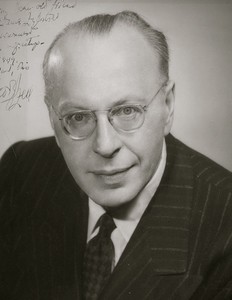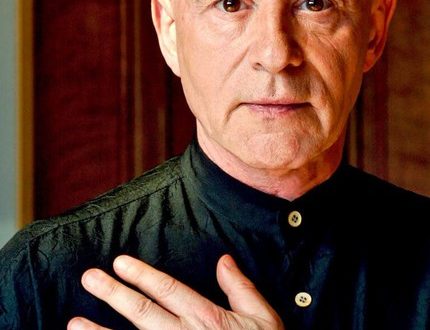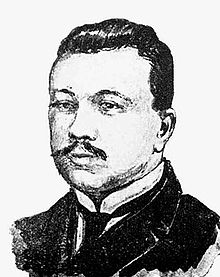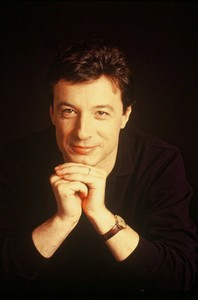
George Szell (George Szell) |
George Szell

Most often, conductors lead the best bands, having already achieved world fame. George Sell is an exception to this rule. When he took over the leadership of the Cleveland Orchestra more than twenty years ago, he was comparatively little known; True, the Clevelands, although they enjoyed a good reputation, won by Rodzinsky, were not included in the elite of American orchestras. The conductor and the orchestra seemed to be made for each other, and now, two decades later, they have rightfully won universal recognition.
However, Sell was, of course, not accidentally invited to the post of chief conductor – he was well known in the USA as a highly professional musician and an excellent organizer. These qualities have developed in the conductor over many decades of artistic activity. A Czech by birth, Sell was born and educated in Budapest, and at the age of fourteen he appeared as a soloist in a public concert, performing a Rondo for piano and orchestra of his own composition. And at the age of sixteen, Sell was already conducting the Vienna Symphony Orchestra. At first, his activities as a conductor, composer and pianist developed in parallel; he improved himself with the best teachers, took lessons from J.-B. Foerster and M. Reger. When the seventeen-year-old Sell conducted a performance of his symphony in Berlin and played Beethoven’s Fifth Piano Concerto, he was heard by Richard Strauss. This decided the fate of the musician. The illustrious composer recommended him as a conductor to Strasbourg, and from then on Sell’s long period of nomadic life began. He worked with many excellent orchestras, achieved excellent artistic results, but … each time, for various reasons, he had to leave his wards and move to a new place. Prague, Darmstadt, Düsseldorf, Berlin (here he worked the longest – six years), Glasgow, The Hague – these are some of the longest “stops” on his creative path.
In 1941, Sell moved to the United States. Once Arturo Toscanini invited him to conduct his NBC orchestra, and this brought him success and many invitations. For four years he has been working at the Metropolitan Opera, where he puts on several outstanding performances (Salome and Der Rosenkavalier by Strauss, Tannhäuser and Der Ring des Nibelungen by Wagner, Otello by Verdi). Then work began with the Cleveland Orchestra. It was here, finally, that the best qualities of a conductor were able to manifest themselves – a high professional culture, the ability to achieve technical perfection and harmony in performance, a broad outlook. All this, in turn, helped Sell to raise the team’s level of play to a great height in a short time. Sell also achieved an increase in the size of the orchestra (from 85 to more than 100 musicians); a permanent choir was created at the orchestra, headed by the talented conductor Robert Shaw. The versatility of the conductor contributed to the all-round expansion of the orchestra’s repertoire, which includes many monumental works of the classics – Beethoven, Brahms, Haydn, Mozart. Their creativity forms the basis of the conductor’s programs. A significant place in his repertoire is also occupied by Czech music, especially close to his artistic personality.
Sell willingly performs Russian music (especially Rimsky-Korsakov and Tchaikovsky) and works by contemporary authors. Over the past decade, the Cleveland Orchestra, led by Szell, has made a name for itself on the international stage. He twice made large tours of Europe (in 1957 and 1965). During the second trip, the orchestra performed in our country for several weeks. Soviet listeners appreciated the conductor’s high skill, his impeccable taste, and his ability to carefully convey the composers’ ideas to the audience.
L. Grigoriev, J. Platek, 1969





